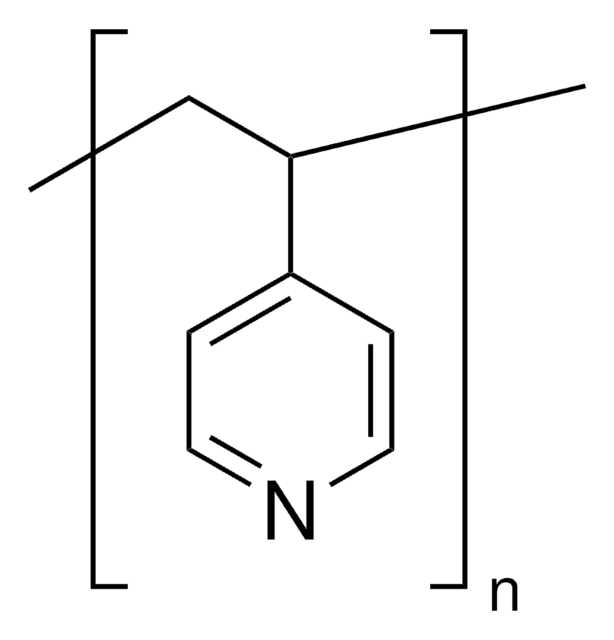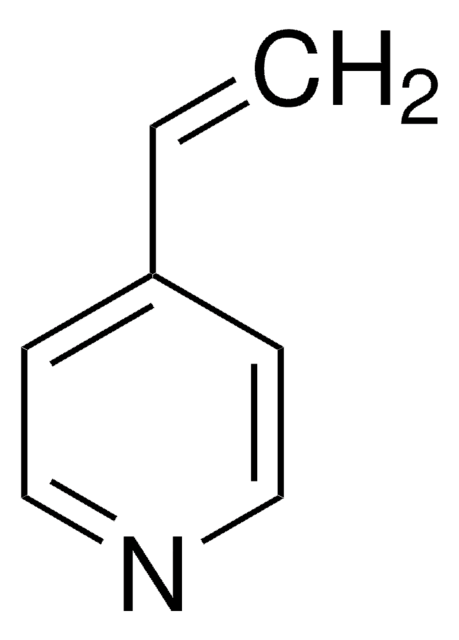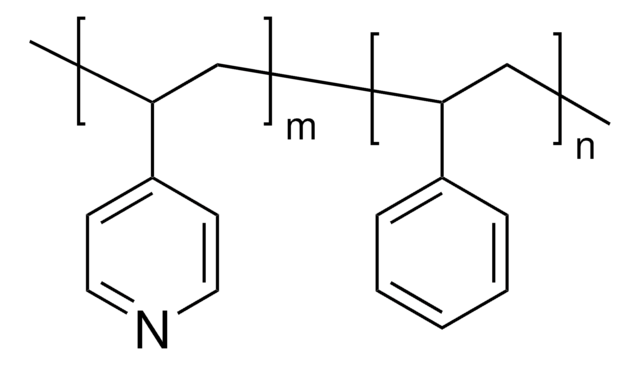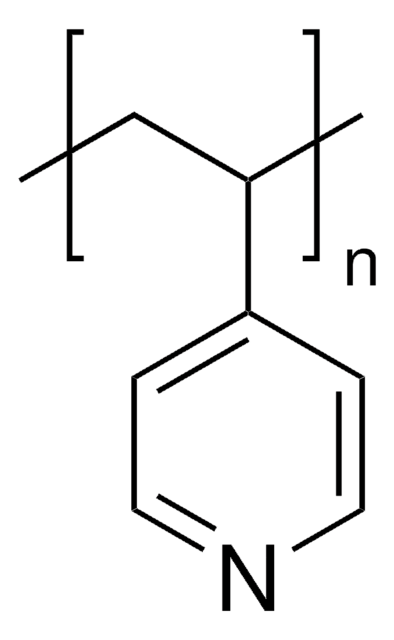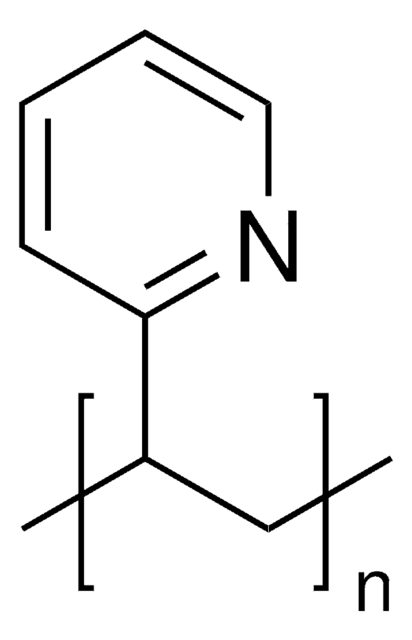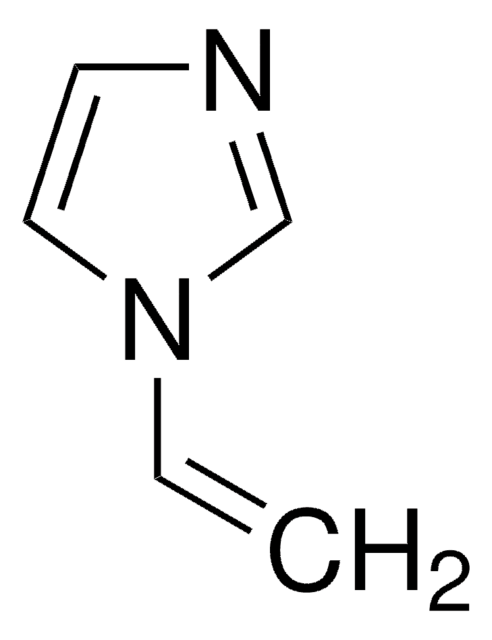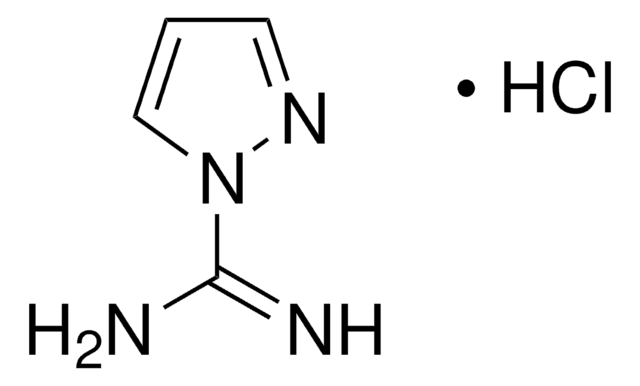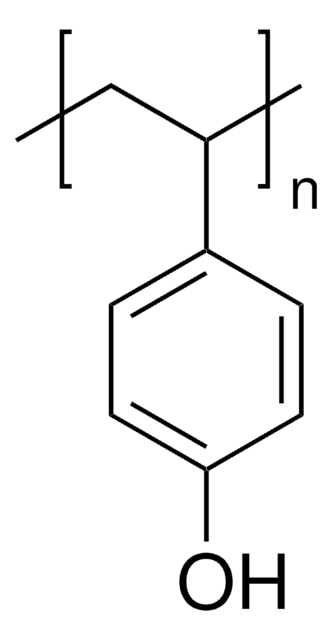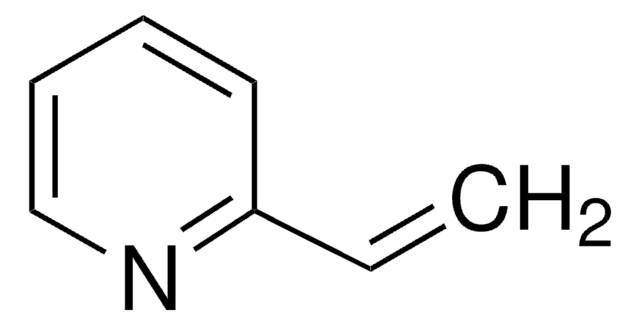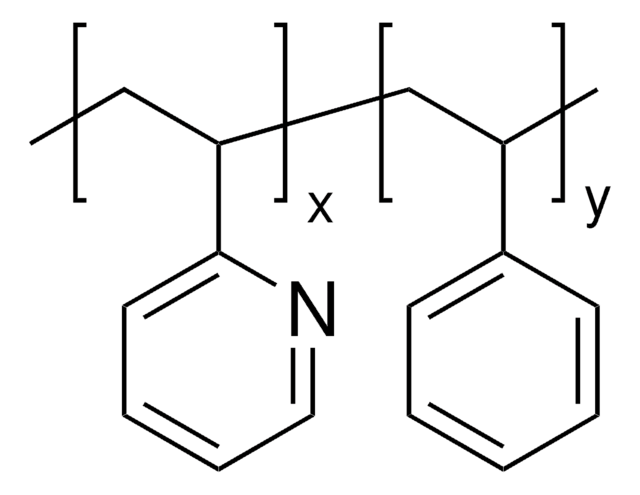472344
Poly(4-vinylpyridine)
average Mw ~60,000
Synonym(s):
4-Vinylpyridine homopolymer, 4-Vinylpyridine polymer, Poly(4-pyridylethylene), Poly(p -vinylpyridine)
About This Item
Recommended Products
mol wt
average Mw ~60,000
Quality Level
transition temp
Tg 137 °C (onset, annealed)
solubility
DMF, acetic acid and lower alcohols: soluble
SMILES string
n1ccc(cc1)C=C
InChI
1S/C7H7N/c1-2-7-3-5-8-6-4-7/h2-6H,1H2
InChI key
KFDVPJUYSDEJTH-UHFFFAOYSA-N
Looking for similar products? Visit Product Comparison Guide
Related Categories
General description
Application
- fabrication of antibacterial surfaces
- development of pH sensitive systems
- 3D molecular level ordering systems
- anti-corrosive coatings
- dye sensitized solar cells (DSSCs)(90}
Storage Class
11 - Combustible Solids
wgk_germany
WGK 3
flash_point_f
Not applicable
flash_point_c
Not applicable
ppe
dust mask type N95 (US), Eyeshields, Gloves
Choose from one of the most recent versions:
Already Own This Product?
Find documentation for the products that you have recently purchased in the Document Library.
Customers Also Viewed
Global Trade Item Number
| SKU | GTIN |
|---|---|
| 472344-25G | 4061832360591 |
Our team of scientists has experience in all areas of research including Life Science, Material Science, Chemical Synthesis, Chromatography, Analytical and many others.
Contact Technical Service